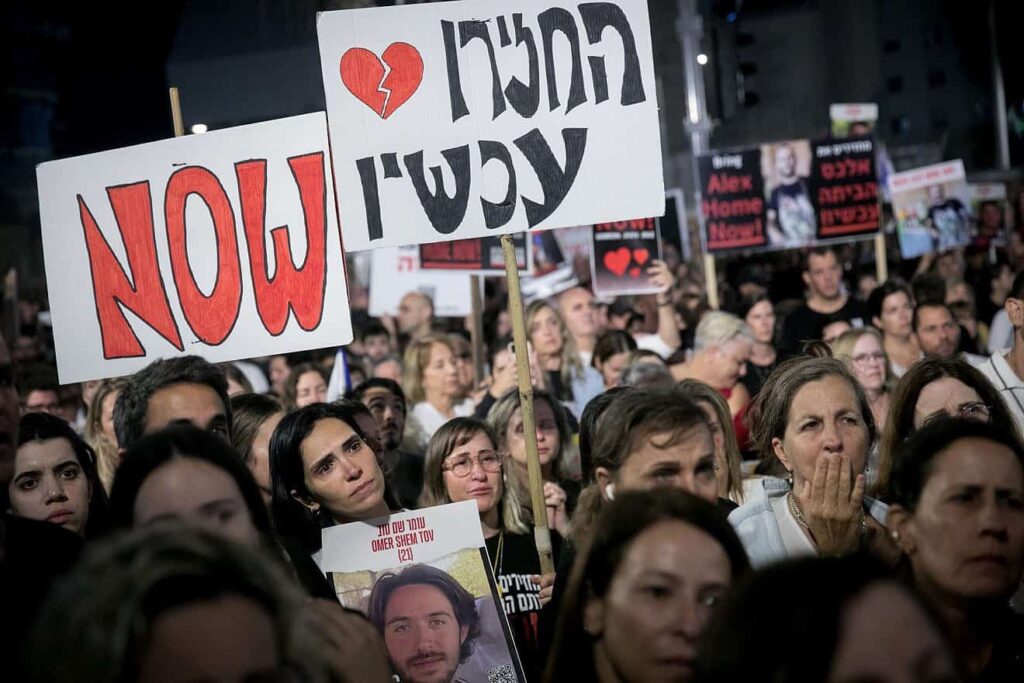
Hostages’ families step up protests amid talk of deal with Hamas
Israel’s government remains convinced the best way to bring the captives home is to keep up the pressure in Gaza.
Israeli and Arab officials have over the past week ramped up efforts to forge another ceasefire deal between Jerusalem and Hamas. The diplomatic press comes as the families of the 129 captives still being held in the Gaza Strip have escalated their protests against the Netanyahu government.
Demonstrations demanding the return of the hostages intensified following the accidental killing last week of three hostages by Israeli forces in Gaza, who mistook them for Hamas terrorists. In one protest, people blocked roads in central Tel Aviv.
Ronen Tzur, the spokesperson for the Hostages and Missing Families Forum, announced that the families would go on a hunger strike beginning Saturday.
On Tuesday, Israeli Prime Minister Netanyahu met with representatives of the hostages’ families at the Kirya military headquarters and reaffirmed his commitment to bringing the captives home.
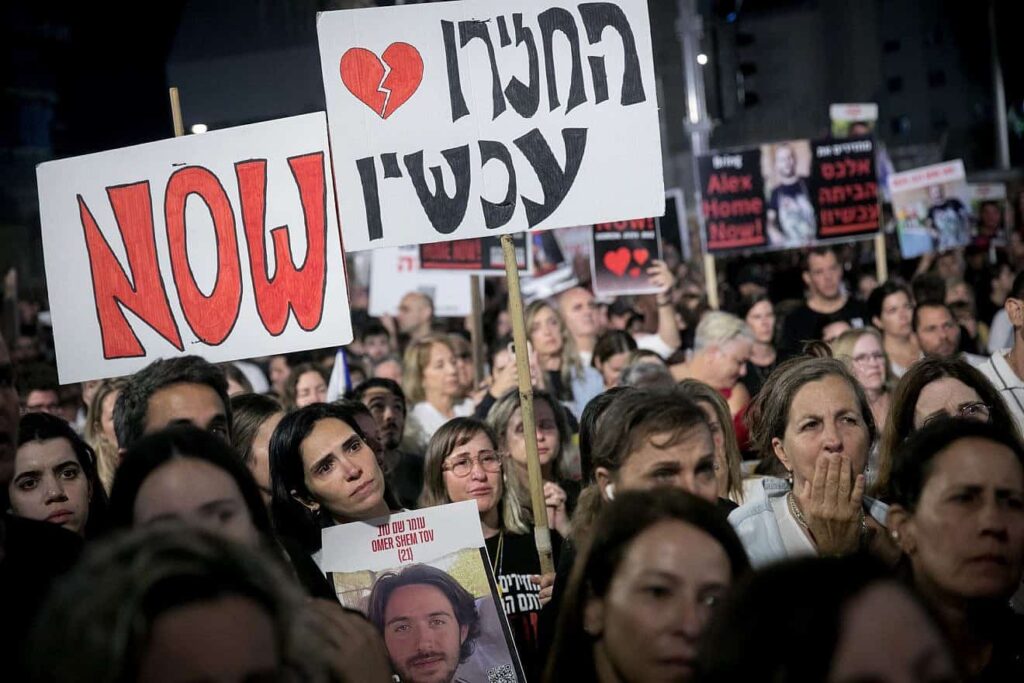
Rumors of a deal picked up on Wednesday when Hamas politburo leader Ismail Haniyeh arrived in Egypt for talks, with Hebrew-language media reporting that Israel is willing to hold fire in Gaza for at least a week in exchange for the release of 30-40 women, elderly and ill captives. 825822
Lior Peri has been camping outside Israel Defense Forces headquarters in Tel Aviv, alongside other family members of hostages held in Gaza, demanding they be freed.
His father Chaim Peri, 79, is being held by Hamas.
“Our last meeting with members of the War Cabinet was depressing. They want to continue waging war even though it is incompatible with releasing hostages,” Lior told JNS.
Despite reports that Mossad chief David Barnea recently met in Warsaw with Qatar’s prime minister and CIA Director William Burns to prepare the groundwork for talks, Peri remains pessimistic.
“We know of the conditions in which hostages are detained. They could die from the inhuman treatment or lack of medical treatment,” he said.
On Monday, Chaim appeared in a Hamas propaganda video along with two other captives, Yoram Metzger, 80, and Amiram Cooper, 85, pleading for the Israeli government to agree to the terrorist group’s terms.
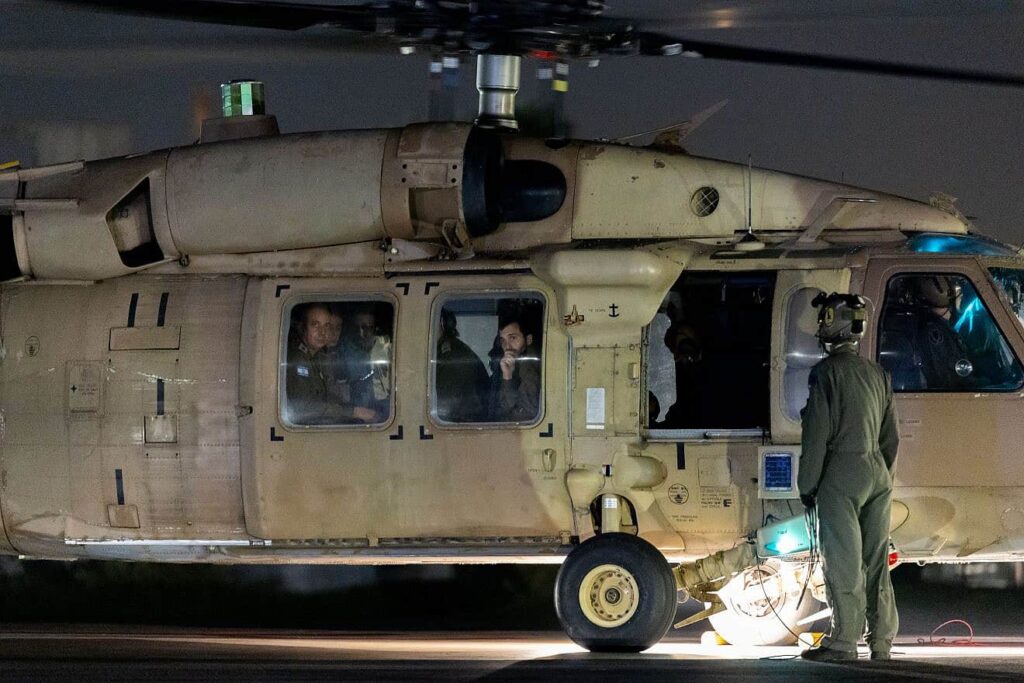
(Source: JNS)
Chaim, who suffered a heart attack five years ago, was stable when Hamas launched the war on Oct. 7 by invading southern Israel, killing 1,200 people, wounding thousands more and kidnapping some 240. But Lior remains concerned that with no access to medicine, his father’s health may have deteriorated.
On Monday, a senior government official told JNS that “the heavy military pressure that we exerted on Hamas created the conditions that led to the release of some of the hostages” during a week-long ceasefire that began on Nov. 24.
“We will continue to pursue every avenue to bring the hostages back. We will not rest until they come home and until the Hamas terrorist regime is eliminated and no longer in control of the Strip,”the source said.
Daniel Lifshitz’s grandparents were abducted on Oct. 7, and his grandfather Oded is still being held in Gaza. His grandmother Yocheved was released in late October.
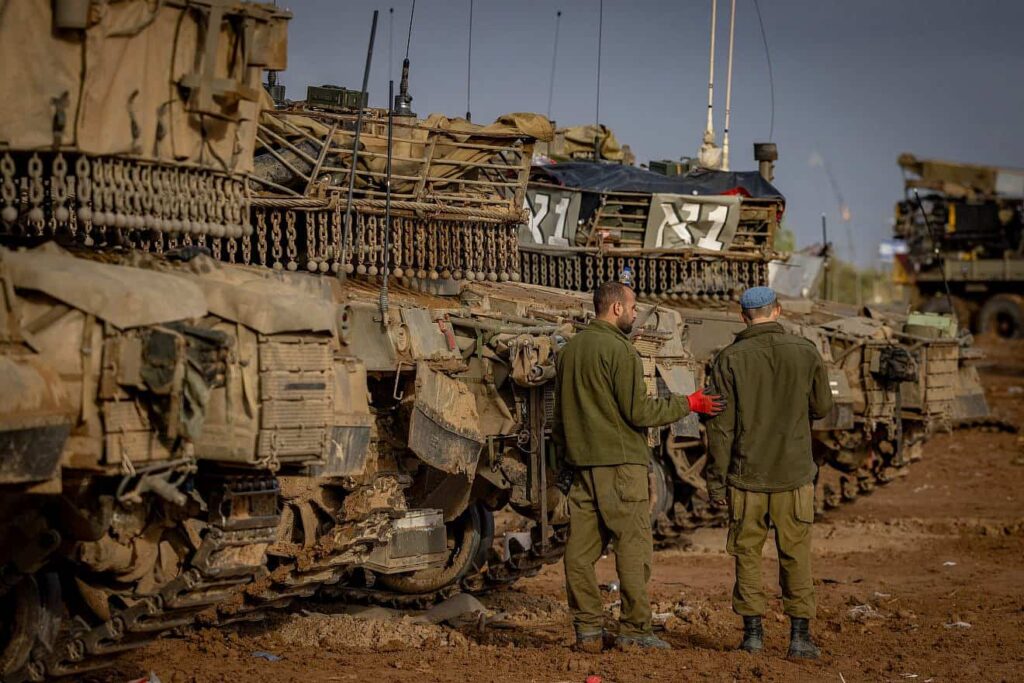
(Source: JNS)
“Don’t leave the negotiation table unless you reach an agreement, and process it immediately,” Lifshitz told JNS as he stood outside the Kirya compound during a protest.
“We are standing here and every hour we will also be blocking the entrance, because those hostages have no time left. They are dying there, the risk is higher every day,” he added.
One of the hostages freed during the previous ceasefire was held at the same site as Oded, and confirmed that he had not received his medication.
“My grandfather is 83, he is taking pills to regulate his blood pressure and he suffers from lung disease,” said Lifshitz.
“He is not receiving any assistance, not from the Red Cross and not from the Polish government, even though he is a dual citizen. He can’t go on like this,” he added.
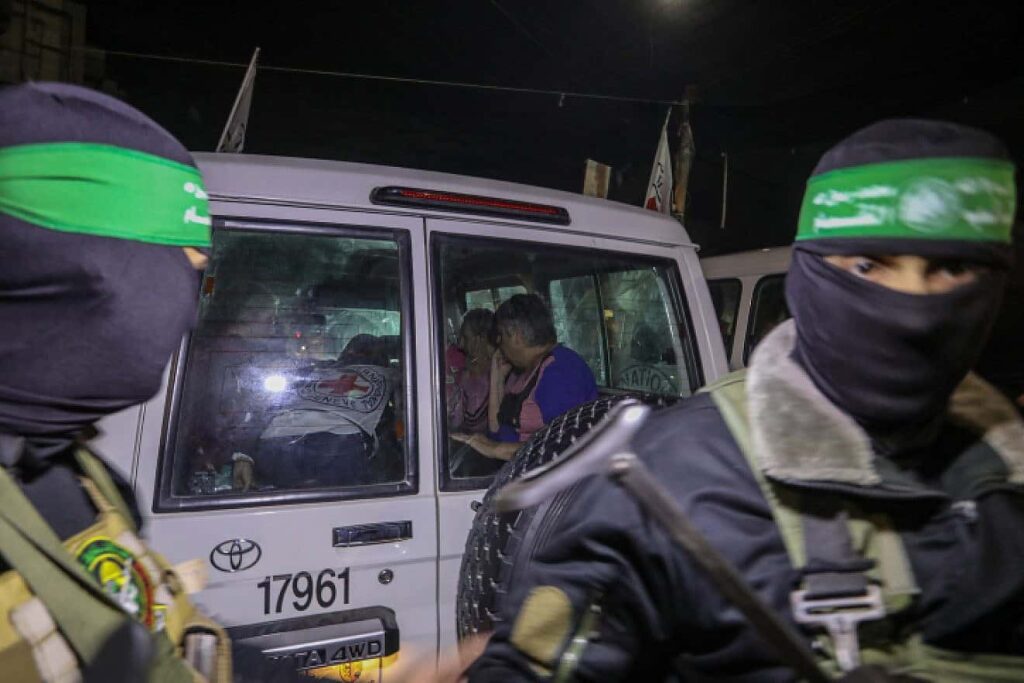
(Source: JNS)
According to Martin Sherman, founder and director of the Israel Institute for Strategic Studies, the government is committed to bringing home every hostage, but believes that the best way to do so is by keeping up the pressure on Hamas.
“Hamas has been using hostages for extortion purposes for years. Delaying the fighting and allowing Hamas to regroup would only cost more lives. The government is already endangering troops to retrieve the hostages,” said Sherman.
“We must do our utmost to retrieve the hostages, but I think that our best chance is via coercive means,” he added.
The post Hostages’ families step up protests amid talk of deal with Hamas appeared first on Israel365 News.
Israel in the News